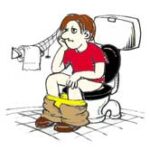 During the American Urological Association (AUA) 2010 Annual Scientific Meeting, researchers from the University of Alabama at Birmingham reported that a comprehensive behavioral therapy program is as effective as drug therapy for treating overactive bladder (OAB) in men without significant bladder outlet obstruction.
During the American Urological Association (AUA) 2010 Annual Scientific Meeting, researchers from the University of Alabama at Birmingham reported that a comprehensive behavioral therapy program is as effective as drug therapy for treating overactive bladder (OAB) in men without significant bladder outlet obstruction.
First, the details.
- 143 men with OAB were assigned to a treatment group for 8 weeks.
- Behavioral therapy
- Pelvic floor muscle exercises
- Delayed voiding
- Self-monitoring with bladder diaries
- Urge-suppression techniques
- Drug therapy: Individually titrated, extended-release oxybutynin (Ditropan) 5 to 30 mg daily to help reach the most effective and tolerable dose.
- Behavioral therapy
- OAB was defined as urgency and frequent urination (greater than 8 times per day), with/without incontinence, and without significant obstruction.
- All participants had persistent OAB symptoms after 4 weeks of alpha-blocker therapy before the study.
- Bladder diaries completed by patients were used to calculate changes in 24-hour urinary frequency, excessive urinating at night, and involuntary urination.
And, the results.
- Behavioral treatment and drug therapy demonstrated significant reductions in number of voids per day, from 11 to 9.
- After treatment, voiding frequencies were the same.
- 36% of the behavioral treatment group and 30% those getting drug therapy had 8 or fewer voids per day.
- Nocturia was reduced by 0.7 episodes per night in the behavior group vs 0.3 episodes in the drug group—a significant difference.
- There was no difference in the perception of improvement, at the end of treatment.
- 56% receiving behavioral therapy reported being “completely satisfied” vs 43% receiving drug therapy.
The bottom line?
The authors concluded, “Behavioral treatment with pelvic floor muscle training, delayed voiding; and urge-suppression techniques are effective for reducing frequency of voiding in men with OAB, and yield outcomes at least as good as drug therapy.”
Lack of side effects is a plus for behavioral therapy, but it takes effort to learn the techniques, and follow-up to ensure the techniques are being used properly.
Most important, behavior therapy is an alternative to drug treatment for men with overactive bladder.
6/4/10 15:31 JR